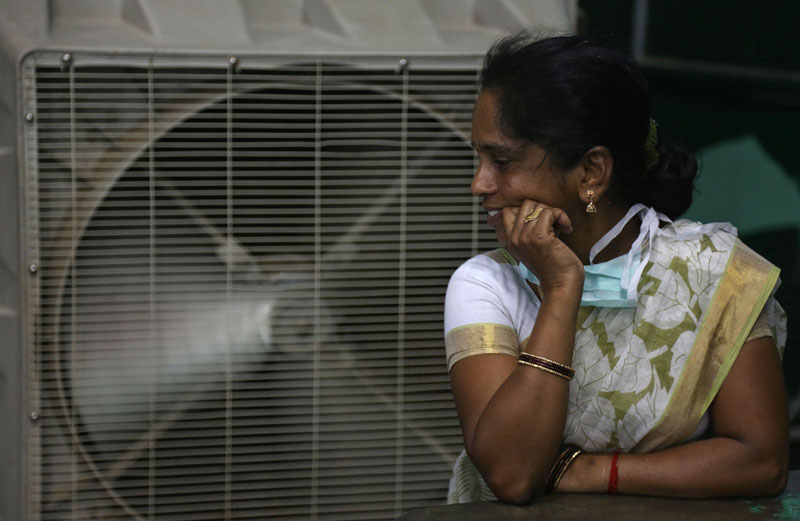UN: After hot 2015, new normal is hotter world temperatures
GENEVA: Hotter weather appears to be here to stay, El Nino or not, the UN weather agency said Monday, warning that the Paris climate accord last year shouldn't give way to complacency about global warming.
The World Meteorological Organisation issued its annual climate report following a record-hot 2015, highlighting records already announced by different countries' weather agencies. The agency pointed out that not only was 2015 breaking records on the surface but also hundreds of meters deep in the ocean.
And the first two months of 2016 were even hotter, so startling that they "have sent shockwaves around the climate sciencecommunity," David Carlson of the World Climate Research Programme said in a statement.
Climate scientists blame record high temperatures last year and this year so far on a combination of a super-sized El Nino, which is a natural warming of parts of the Pacific that changes weather worldwide, on top of a long-term global warming trend from the burning of fossil fuels.
NASA said last month was 1.35 degrees Celsius (2.43 degrees Fahrenheit) warmer than average. Of that, 0.8 degrees (1.44 degrees Fahrenheit) comes from the long-term warming and 0.25 degrees (0.45 degrees Fahrenheit) from El Nino, with the rest unexplained residual, calculated climate scientist Stefan Rahmstorf of the Potsdam Institute in Germany and the University of New South Wales.
Even after the El Nino phenomenon abates in coming months, way above normal temperatures won't exactly go away, Carlson and others said.
"We're on a slope; sometimes the slope goes very steep, sometimes it's a little bit more shallow, but we're going upward," Carlson said in a news conference. "So the normal is going to be increases: It's going to be increased temperature, increased ocean heat content, loss of ice, we know all of these things."
Katharine Hayhoe, a Texas Tech climate scientist who wasn't part of the WMO team, agreed: "These records vividly illustrate the destructive power of an El Nino on climate change steroids."
The WMO predicts warmer weather accompanied by pockets of both drier and wetter conditions, depending on the region, around the world.
WMO Secretary-General Petteri Taalas told reporters in Geneva that many people believe the climate issue is "solved ... since we reached a nice agreement in Paris." But, he said, "we haven't changed our behavior yet."






